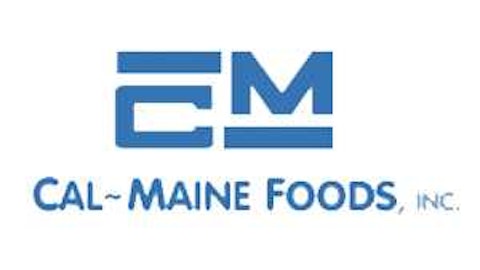Perhaps residential solar power would become much more common, thus reducing your energy bills. Technological hurdles stunted solar’s rise in the last decade as wind soared to the top, but the gap may be closing. A new report released this week showed that the United States added a record 723 MW of solar capacity in the first quarter. Residential solar added 164 MW and grew 53% year-over-year — the largest growth of any segment. Market forces are certainly pointing to a bright future for SunPower Corporation (NASDAQ:SPWR) and SolarCity Corp (NASDAQ:SCTY), which could really take-off if a carbon tax became law.
Where would all of this revenue go? It could pay consumers to offset any increase in energy bills, fund future energy investments such as next-generation nuclear reactors, or help close the budget deficit. Consumers win (economically), future generations win (health), and the only planet we have wins (environmentally). I’d call that a pretty successful tax.
Sugar Tax
Austerity and public health concerns have made taxes on sugar, salts, and energy drink ingredients realities in Denmark, Hungary, and France. Researchers have had a difficult time modeling how taxing sugar would reduce obesity rates, if at all. But if similarities can be drawn between taxing tobacco products and unhealthy foods/ingredients, policymakers have reasons to entertain the idea.

This soda serving could cost you a couple extra cents before the end of the decade. Source: Wikimedia Commons
Why tax sugar? Let’s begin by saying that obesity is a very complex issue that is linked to physical activity, diet, genetics, and biochemical responses to your environment, or epigenetics. Although diet fails to account for all cases of obesity, reducing the consumption of unhealthy foods could save billions in health care costs each year.
At last count nearly 36% of adults and 17% of children and adolescents in the United States were obese, according to figures released by the Center for Disease Control. That is up markedly from rates just 10 and 20 years ago. The belt-busting trend cost Americans an estimated $190 billion in health care costs in 2011 alone. Therefore, every 1% drop in obesity prevalence that results from a sugar tax would save Americans close to $2 billion in annual health care costs. What do we have to lose?
Additionally, if the performance of the tobacco industry is any gauge then soft drink producers such as The Coca-Cola Company (NYSE:KO) and PepsiCo, Inc. (NYSE:PEP) have little to fear. It is a bit more complicated than tobacco taxes, however. Blaming increased risk of lung cancer on smoking is much more of a slam-dunk than putting all of the blame of rising obesity rates on sugary drinks alone. So it is easy to see why the two companies and the American Beverage Association spent $70 million on lobbying and advertising from 2009-2012 to stamp out proposed sugar taxes in 30 states. Still, I think it is only a matter of time before a state sugar tax successfully passes.
Foolish bottom line
It will not be easy for these two taxes to become law, but the long-term benefits certainly outweigh the risk of spending more on energy or soft drinks in the short-term. They could generate hundreds of billions of dollars in additional tax revenue in their first few years that could be put toward any combination of projects. Better yet, they do not require the tough decisions that have tripped-up Congress in recent years. While critics point to the mayhem that increased taxes will create on the industries they affect the most, the performance of the tobacco industry over the last decade shows that taxing negative externalities isn’t a death sentence. In fact, the opposite has proven true.
The article 2 Taxes That Can Save America’s Future originally appeared on Fool.com.
Fool contributor Maxx Chatsko has no position in any stocks mentioned. Check out his personal portfolio, his CAPS page, or follow him on Twitter @BlacknGoldFool to keep up with his writing on energy, bioprocessing, and emerging technologies.The Motley Fool recommends Coca-Cola and PepsiCo. The Motley Fool owns shares of PepsiCo.
Copyright © 1995 – 2013 The Motley Fool, LLC. All rights reserved. The Motley Fool has a disclosure policy.





